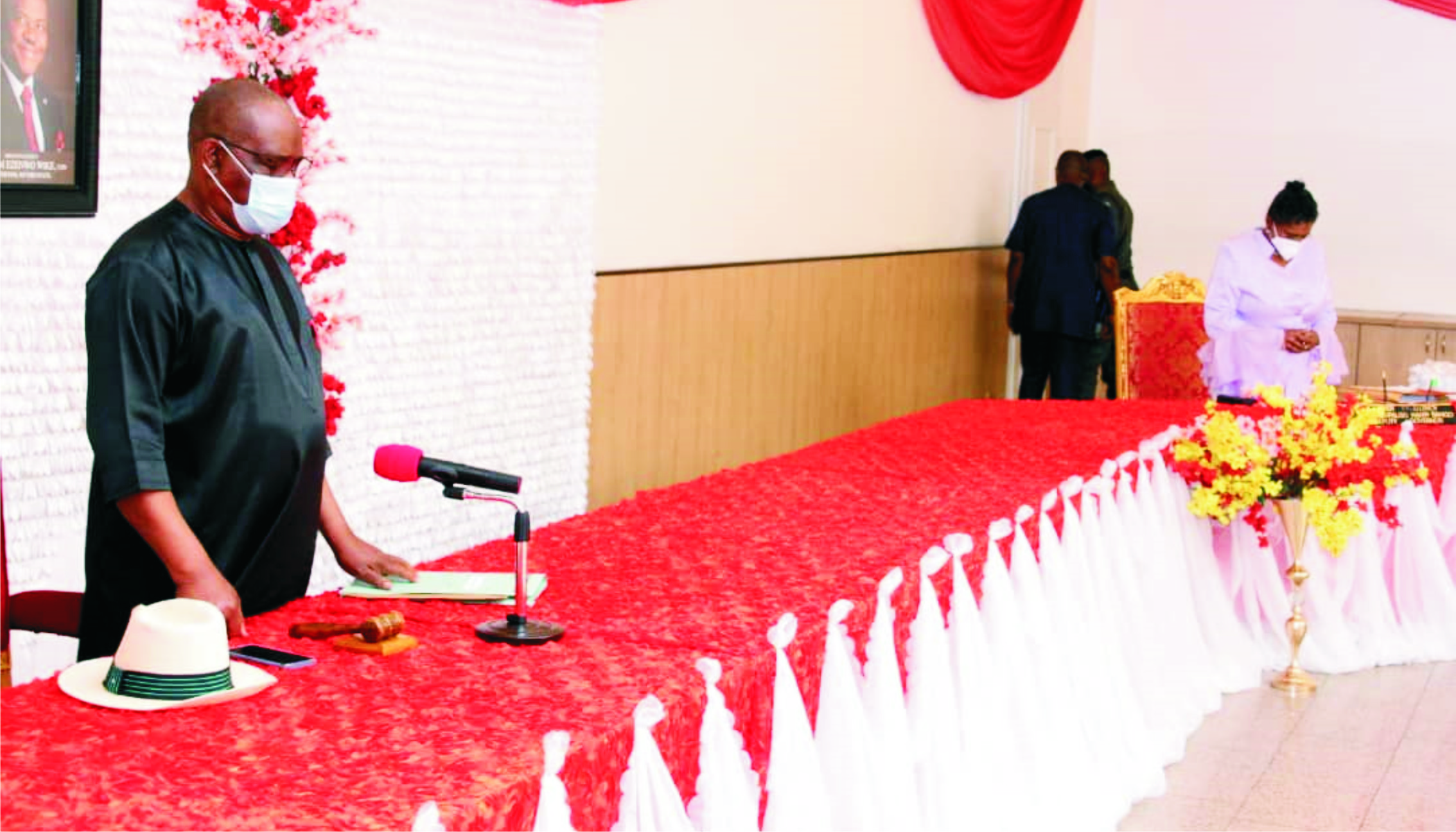Business
Monarch Hails Move To Construct Woji-Aleto-Alesa Road

The approval of the Woji-Aleto-Alesa road construction by the Rivers State Executive Council, has been described as a welcome development, judging by its economic importance to the people upon completion.
This was made known by Eze Gbakagbaka, King Leslie Eke, in an interview with newsmen at his palace in Woji, Obio/Akpor Local Government Area (LGA), yesterday.
Eze Eke pointed out that the road would be of immense economic importance to the entire state and businesses due to its strategic linking to some economic areas of the state.
The traditional ruler, who is also the Nyerisi Eli Woji and Eze Oha Evo III of Evo Kingdom, said the road would help in bringing development to the area.
According to him, the crisscrossing of a virgin forest as planned, would not only evoke development in the affected place, but would tackle the issue of unemployment.
“The contract for the construction of the road linking, Woji-Aleto-Alesa to Port Harcourt, is a noble one. I think, it has the capacity to address unemployment and other economic challenges”, he said.
Another possible gain of the road, was easy access to the Port Harcourt Refinery, which according to him, deserved better economic attention.
Earlier, he warned hoodlums who may pose under whatever guise not to attempt disrupting the job from Woji axis, as such would be grossly and severally resisted by the palace leadership.
While appreciating Governor Nyesom Wike, over his sworn determination to permanently transform the state, he assured of his people’s undiluted support throughout his administration.
It would be recalled that the State Executive Council meeting presided over by Governor Nyesom Wike on Wednesday, August 19, 2020, approved the Woji-Aleto-Alesa road project which will cost about N9.6 billion, as announced by the Commissioner for Information and Communications, Pastor Paulinus Nsirim.
Business
Agency Gives Insight Into Its Inspection, Monitoring Operations

Business
BVN Enrolments Rise 6% To 67.8m In 2025 — NIBSS

The Nigeria Inter-Bank Settlement System (NIBSS) has said that Bank Verification Number (BVN) enrolments rose by 6.8 per cent year-on-year to 67.8 million as at December 2025, up from 63.5 million recorded in the corresponding period of 2024.
In a statement published on its website, NIBSS attributed the growth to stronger policy enforcement by the Central Bank of Nigeria (CBN) and the expansion of diaspora enrolment initiatives.
NIBSS noted that the expansion reinforces the BVN system’s central role in Nigeria’s financial inclusion drive and digital identity framework.
Another major driver, the statement said, was the rollout of the Non-Resident Bank Verification Number (NRBVN) initiative, which allows Nigerians in the diaspora to obtain a BVN remotely without physical presence in the country.
A five-year analysis by NIBSS showed consistent growth in BVN enrolments, rising from 51.9 million in 2021 to 56.0 million in 2022, 60.1 million in 2023, 63.5 million in 2024 and 67.8 million by December 2025. The steady increase reflects stronger compliance with biometric identity requirements and improved coverage of the national banking identity system.
However, NIBSS noted that BVN enrolments still lag the total number of active bank accounts, which exceeded 320 million as of March 2025.
The gap, it explained, is largely due to multiple bank accounts linked to single BVNs, as well as customers yet to complete enrolment, despite the progress recorded.
Business
AFAN Unveils Plans To Boost Food Production In 2026
-

 News5 days ago
News5 days ago2026 Budget: FG Allocates N12.78bn For Census, NPC Vehicles
-

 Sports5 days ago
Sports5 days agoAFCON: Osimhen, Lookman Threaten Algeria’s Record
-

 Politics5 days ago
Politics5 days agoWike’s LGAs Tour Violates Electoral Laws — Sara-Igbe
-

 Politics5 days ago
Politics5 days agoRivers Political Crisis: PANDEF Urges Restraint, Mutual Forbearance
-

 Sports5 days ago
Sports5 days agoPalace ready To Sell Guehi For Right Price
-

 Sports5 days ago
Sports5 days agoArsenal must win trophies to leave legacy – Arteta
-

 Sports5 days ago
Sports5 days agoTottenham Captain Criticises Club’s Hierarchy
-

 Sports5 days ago
Sports5 days agoNetball ‘Project 2027’ Sets Higher Target

